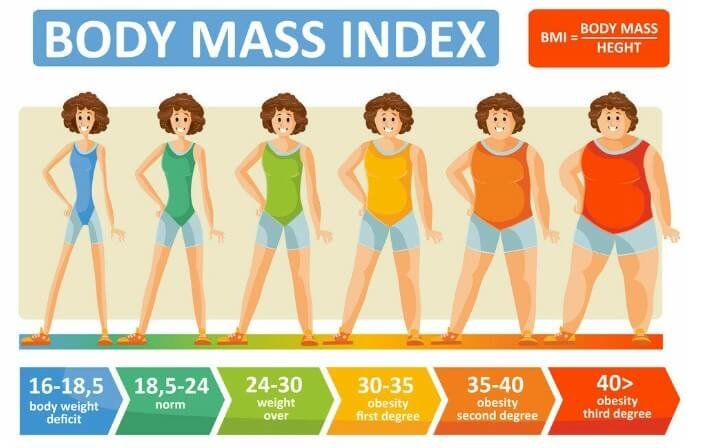Healthy Weight: How To Calculate BMI for Adult Men & Women
Definitions for healthy weight, overweight, and obesity were established based on the BMIs of millions of people and how they correlated with rates of illness and death. The index can be calculated using your height and weight.
Body mass index, or BMI for short, is a measure of body weight based on your height. The traditional thinking about BMI was that it could tell you if you were at a healthy weight, or if your health might benefit if you lost or gained a few (or more) pounds.
Today that thinking has undergone a sea change, with health experts questioning the validity and usefulness of BMI as a health assessment tool. It’s no longer considered to be something that defines you, nor can the measure alone tell you if you’re a healthy person or not.
While your healthcare team may still look at your BMI, the American Medical Association recommends that it be used in conjunction with other valid measures of risk, such as body composition, waist circumference, and genetic or metabolic factors.
If weight loss is a goal for you, recommendations should not be based solely on this one number but on decisions you make with your healthcare team, taking both your goals and health risks into consideration.
Since BMI is a measure still widely in use, it’s helpful to understand it, and how you can calculate it on your own.
How to Read a BMI Chart and How to Calculate Your BMI
If you’re an adult, locate your height in inches (remember, there are 12 inches in each foot) and your weight in pounds on the BMI chart below. Where those numbers intersect is your BMI, which will be in the normal (healthy), overweight, or obese range.
If your weight and height are not in this sample chart, use the mathematical equation below to find out where you fall.
What the Figures Mean
According to the CDC, healthcare professionals don’t use BMI to diagnose people with conditions. Yet BMI may be an indicator for overweight and obesity, which can increase your risk of health troubles such as cancer, stroke, heart disease, and type 2 diabetes, per the National Institute of Diabetes and Digestive and Kidney Diseases.




